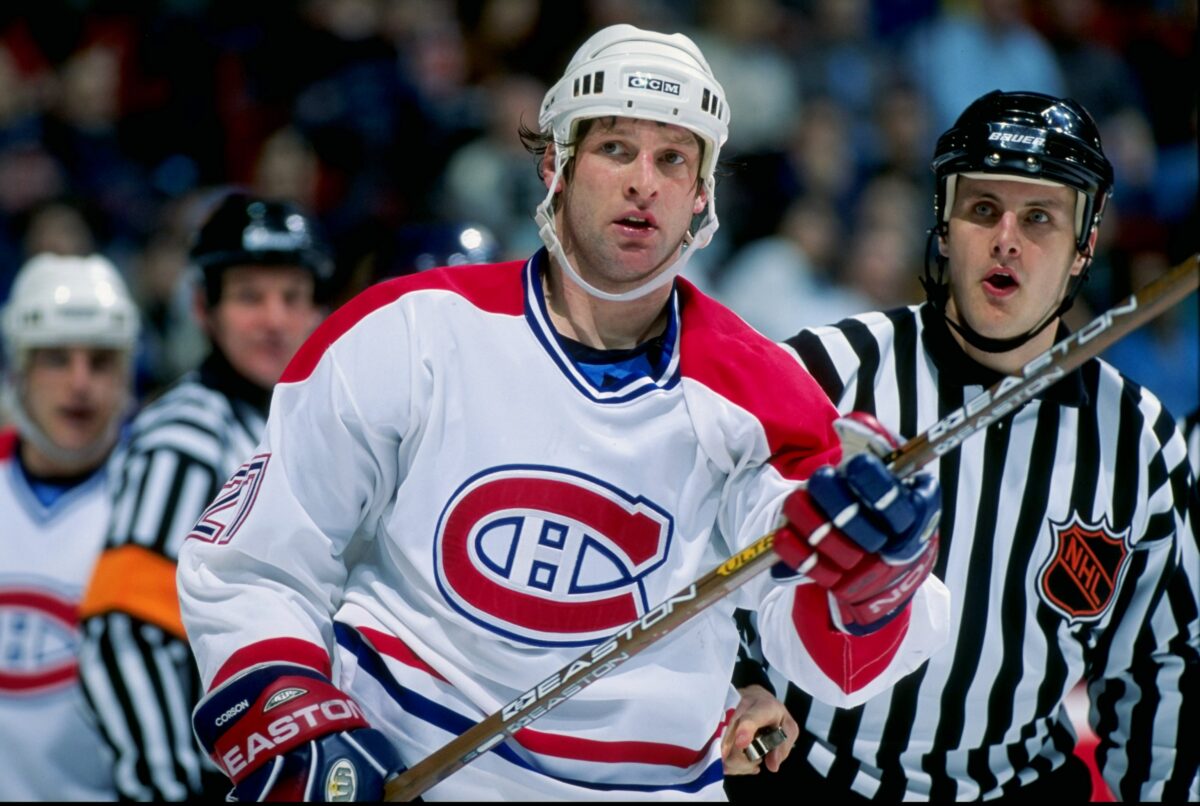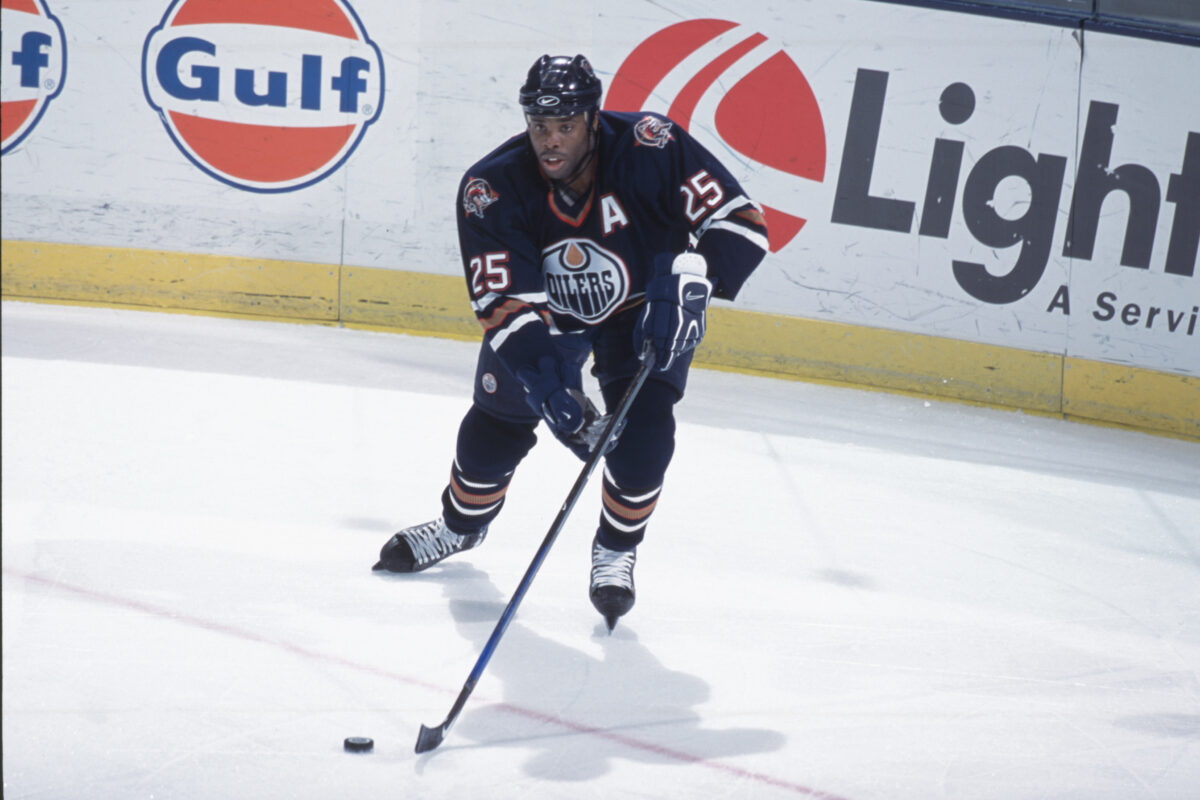In an exceptionally rare move on Tuesday (Aug. 13), the St. Louis Blues tendered offer sheets to a pair of restricted free-agent (RFA) Edmonton Oilers, defenceman Philip Broberg and forward Dylan Holloway. Broberg’s offer is two years at $4,580,917 annually, while Holloway’s offer is two years at $2,290,457 annually.
The Oilers have until Aug. 20 to match each respective offer or receive compensation, which would be St. Louis’ 2025 second-round draft pick for Broberg and St. Louis’ 2025 third-round draft pick for Holloway.
Related: Blues’ Offer Sheet Attack on Oilers Is Karma Catching Up
Broberg and Holloway are only the 11th and 12th players in the NHL’s salary cap era to be tendered offer sheets, and this is just the second occasion in NHL history that a team has tendered offer sheets to multiple players from the same team on the same day.
This is also the first time in almost three decades that an Edmonton player has been tendered an offer sheet. Incidentally, that scenario also involved the Blues. And it turned out to be one of the best things that ever happened to the Oilers.
Corson Signs With Blues
On July 28, 1995, RFA Oilers forward Shayne Corson signed a five-year, $6.975 million offer sheet with St. Louis. Corson, who was originally acquired by Edmonton in a trade with the Montreal Canadiens on Aug. 27, 1982, had spent the previous three seasons with the Oilers, totalling 137 points in 192 games from 1992-93 to 1994-95.

This was a challenging period for the Oilers, who missed the playoffs every season with Corson. Edmonton had parted with almost every player from its Dynasty Era, and was in the midst of a full-blown rebuild with a collection of young players who could use a leader to show them the way. Corson, nearly a decade into his NHL career, was thought to be that guy. He turned out to be anything but.
Going into the 1994-95 season, new Edmonton coach George Burnett bestowed Corson, then 28, with the captain’s ‘C’. Corson succeeded previous captain Craig MacTavish, who Edmonton traded to the New York Rangers on March 21, 1994. At the time he was named captain, Corson was among Edmonton’s oldest players and one of just a few Oilers on the roster who had Stanley Cup Final experience.
The left-winger’s tenure as captain lasted just 35 games – the shortest in franchise history – before a series of incidents led Burnett to strip Corson of captaincy on April 4, 1995, while Edmonton was in the midst of a nine-game losing streak.
Corson had publicly criticized Burnett, suggesting the coach tried to embarrass him with a third-period benching during a blowout loss to the Kings (from “Oilers Fire Burnett”, The Kingman Daily Miner, 04/07/95). That came on the heels of an altercation between Corson and 20-year-old Oilers star center Jason Arnott when the former felt he deserved an assist that had been awarded to the latter.
Two days after Corson had the ‘C’ taken off his jersey, Oilers general manager Glen Sather fired Burnett and installed Ron Low behind the bench. With all the volatility left in Corson’s wake, it wouldn’t be a stretch to think that by the summer of 1995, the Oilers were ready to move on from him.
Oilers Get Draft Picks as Compensation
The Oilers elected not to match and were compensated with St. Louis’ first-round draft pick in both 1996 and 1997. Then they turned around and traded those two picks back to St. Louis in exchange for the rights to All-Star goaltender Curtis Joseph and Mike Grier, a 20-year-old forward prospect.
Joseph didn’t sign with the Oilers until January of 1996, inking a three-year contract worth a total of $6.9 million. Sather then traded Edmonton’s longtime starting netminder Bill Ranford to the Boston Bruins, giving the crease to Joseph.
Grier played his junior season at Boston University in 1995-96, before turning pro and making Edmonton’s roster out of his first Oilers training camp in 1996.
Grier and Joseph Part of Oilers’ Success
Not only did Edmonton return to the postseason in 1997 after a four-year absence, but the Oilers engineered first-round upsets of the Dallas Stars and Colorado Avalanche in 1997 and 1998, respectively. Grier played a key role while Joseph was the difference-maker in Edmonton’s success.
In overtime of Game 7 against Dallas in 1997, Joseph made arguably the greatest save in Oilers history, robbing Joe Nieuwendyk only moments before Todd Marchant scored the series-winning goal for Edmonton. Against the Avalanche in 1998, Joseph set an Oilers franchise record by shutting out Colorado the final 163:40 of the series as Edmonton won three straight games after falling behind 3-1 in that round.

Grier potted the unforgettable game-tying goal during Edmonton’s greatest playoff comeback, in which the Oilers scored three times in 1:56 after trailing 3-0 with just four minutes to play against Dallas in Game 3 of their 1997 series. In 1998 against Colorado, Grier had two goals in the third period of Game 5, scoring both the winning and insurance goal as Edmonton defeated the Avs to begin its comeback from the 3-1 series deficit.
Joseph established many benchmarks during his time in Edmonton. He still shares the franchise record for most shutouts in a single season (eight in 1997-98), and is the Oilers’ all-time leader for playoff shutouts, with five. He left Edmonton in the 1998 offseason, signing with the Toronto Maple Leafs as an unrestricted free agent.
Grier played six seasons in Edmonton, before being traded to the Washington Capitals prior to the 2002-03 season in exchange for a second-round and third-round draft pick in 2003. The winger received three team awards in Edmonton; Top First Year Oiler in 1996-97, Unsung Hero in 1998-99, and Top Defensive Forward in 1999-00.
Compensation Better Than Edmonton’s Best Trades
The offer sheet signing/compensation of 1995 effectively amounted to Edmonton trading Corson to St. Louis for Grier and Joseph. If that swap was an actual trade, it would be one of the best trades in franchise history.
Joseph was the piece Edmonton needed to complete its rebuild. Without his spectacular goaltending, the Oilers wouldn’t have won a single postseason series between 1993 and 2005. Grier, along with the likes of Ryan Smyth, became the heart and soul of the late 1990s and early 2000s Oilers; he helped shape the culture of a team that got more from effort and grit than talent and ability.
Corson lasted barely over a year in St. Louis. Along with Murray Baron and a fifth-round pick in 1997, Corson was dealt to Montreal for Craig Conroy, Pierre Turgeon, and Rory Fitzpatrick on Oct. 29, 1996. He played in the NHL until 2003-04 but scored more than 12 goals in a season just twice after departing Edmonton.
Should the Oilers elect to not match the offer sheets for Broberg (age 23, 13 points in 81 NHL career regular season games) and/or Holloway (age 22, 18 points in 89 career NHL regular season games), can they parlay the compensation into something that matches or perhaps even exceeds the value of the two young players? Time will tell. But history has shown that this kind of situation can ultimately work out positively.
